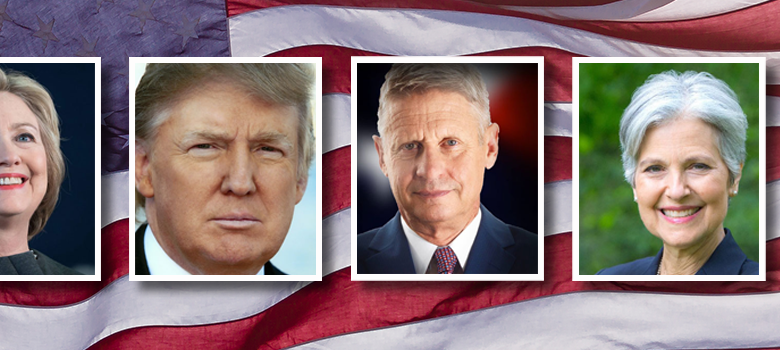
As the 2016 presidential campaign heats up, a coalition of engineering and science groups, including IEEE-USA, has successfully forced our policy issues into the public debate.
The coalition, Science Debate 2016, drafted a set of 20 questions, each focusing on a different policy issue of interest to scientists and engineers. These questions were then sent to the four major Presidential candidates (including independents Gary Johnson and Jill Stein) for a response. Each of the four candidates has responded, and these responses have been posted, verbatim, to: www.sciencedebate2016.org
The questions cover everything from ocean health to space policy, and include several that cover engineering issues that will be of interest to IEEE members, including:
- Science and engineering have been responsible for over half of the growth of the U.S. economy since WWII. But some reports question America’s continued leadership in these areas. What policies will best ensure that America remains at the forefront of innovation?
- Many scientific advances require long-term investment to fund research over a period of longer than the two, four, or six year terms that govern political cycles. In the current climate of budgetary constraints, what are your science and engineering research priorities and how will you balance short-term versus long-term funding?
- The Internet has become a foundation of economic, social, law enforcement, and military activity. What steps will you take to protect vulnerable infrastructure and institutions from cyber-attack, and to provide for national security while protecting personal privacy on electronic devices and the internet?
- Strategic management of the US energy portfolio can have powerful economic, environmental, and foreign policy impacts. How do you see the energy landscape evolving over the next 4 to 8 years, and, as President, what will your energy strategy be?
- Nuclear power can meet electricity demand without producing greenhouse gases, but it raises national security and environmental concerns. What is your plan for the use, expansion, or phasing out of nuclear power, and what steps will you take to monitor, manage and secure nuclear materials over their life cycle?
- There is a political debate over America’s national approach to space exploration and use. What should America’s national goals be for space exploration and earth observation from space, and what steps would your administration take to achieve them?
- There is much current political discussion about immigration policy and border controls. Would you support any changes in immigration policy regarding scientists and engineers who receive their graduate degree at an American university? Conversely, what is your opinion of recent controversy over employment and the H1-B Visa program?
Science Debate submitted similar questionnaires to the candidates in 2012 and 2008. This is the first year the independent candidates were included.
IEEE members are encouraged to read the candidates’ responses prior to the November election, so that you can be fully informed about their positions on these, and other, issues when you vote.






